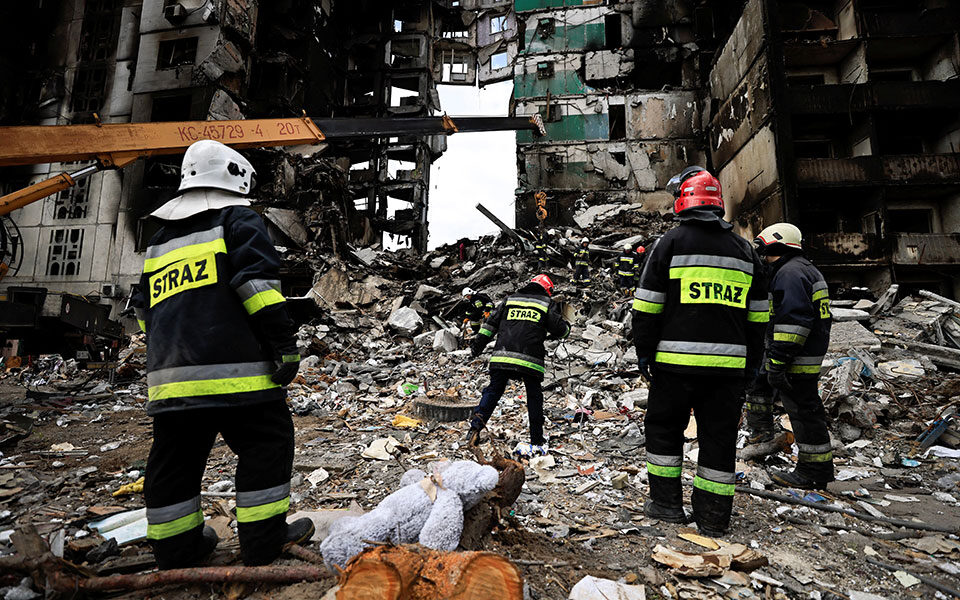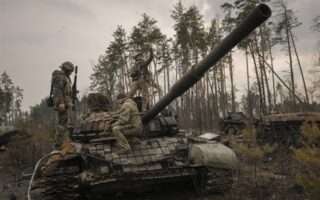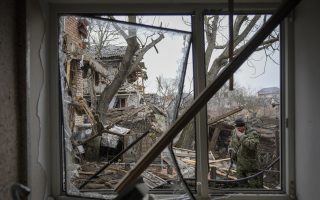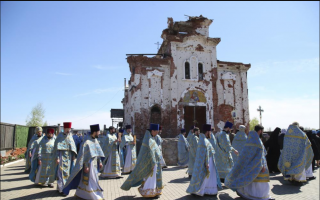Will sanctions on Russia be effective?

More than a month into the deplorable invasion of Ukraine, the conflict appears to be quickly becoming a war of attrition and far from the swift victory that Russia expected. The increasingly severe artillery shelling and other horrifying acts of violence against Ukrainian civilians, along with the ensuing refugee crisis, have left the West with three options of response: 1) acquiesce, 2) intervene militarily to aid the Ukrainians, and 3) sanction Russia and support Ukraine through humanitarian and military aid.
At this stage, even given the brave resistance put up by the Ukrainians and the horrific violence against civilians perpetrated by Vladimir Putin’s forces, the first two strategies seem unlikely to be employed. Certainly, the invasion of a European country, and the bloody way in which the war has played out, makes the West resolute enough that they feel they must do something. However, even as the horrors continue to unfold, the response has been restrained. In particular, there have been repeated requests by Ukrainian President Volodymyr Zelenskyy, and instead the West has enacted unprecedented sanctions on Russia.
Therefore, the central questions now for the West are: How effective are the economic sanctions likely to be? Will they help Ukraine prevail in the conflict? How? Can they help prevent escalation to World War III?
To answer these questions, we must first consider the impact of sanctions on great power bargaining over the terms of the contemporary international order. That is, the de facto great power settlement in place since the end of the Cold War. Furthermore, whether the sanctions on Russia can be considered effective depends, critically so, on what we expect them to do.
In 2017, I argued, with co-author Daniel McCormack, that the sanctions on Russia put in place after the Moscow-sponsored rebellion in eastern Ukraine were designed to slow its rise and smooth out shifts in power that might otherwise lead to great power conflict. While the current sanctions regime is more robust than those of the past and thus hurt Russia – and also the West – much more than previous sanctions, their basic goal is the same.
In the period following the end of the Cold War in 1991, the Russian economy and its military power were a shambles. They were unable to hold territory that the Soviets had considered critical to national security only months earlier. The economic pain was also felt by normal Russians, with high rates of food insecurity and abysmal health metrics. From the perspective of many Russians, the disintegration left them humiliated internationally and forced to accept a new, unfavorable international order, albeit one that was not codified by a treaty, like those which came at the end of the two World Wars.
This abject poverty in Russia continued for most of the 1990s. However, in the 2000s the so-called “Russian economic miracle” took place, with the country’s GDP rising sharply. After this economic recovery, and the newfound military power it brought with it as Russia increased military expenditures drastically, came revisionism from Moscow. Steadily, Russia became involved in former Soviet countries, in some cases pursuing their aims violently, including conflicts in Chechnya, Georgia and Ukraine. Then, as now, the West reacted with sanctions.
To a great extent, the sanctions imposed in response to Russian expansionism since 2008 have helped slow Russia’s rise. While they have failed, and will likely continue to fail, to bring about more ambitious goals of regime change or policy change, the sanctions have slowed Russian GDP growth to the point that some commentators consider it a failing state and interpret Putin’s invasion of Ukraine as an act of desperation. While the consequences for Putin are indeed dire if he loses office and Russian economic and military growth has undoubtedly slowed due to the sanctions, Russian economic and military power is still much greater than it was in the decade following the Cold War, when the current de facto international order solidified. Therefore, Russia remains a revisionist power of that order even under economic constraints.
The implications of the economic destruction wrought by sanctions upon their target for war and peace are a problem along the lines of the Goldilocks principle. If sanctions are not severe enough, they will not constrain Russia from expansionist conflicts, making direct military engagement by NATO more likely and thus increasing the risk of escalation. However, if they threaten to completely wipe out their target’s military power, then sanctions could provide an incentive to escalate militarily while they are still able. This logic is illustrated by the oil embargo imposed on Japan by the United States, which would have decimated Japan’s ability to continue the war and came just months before the Japanese attack on Pearl Harbor.
In terms of severity, the current sanctions on Russia are a marked departure from previous sanctions. The West has shown unprecedented coordination to design a sanctions regime that limits Russian access to foreign reserves, trade, sports, and that targets funds held by Russian oligarchs who help bankroll Putin’s regime. This helps signal the solidarity and resolve of the international community. These measures will seriously hamper the Russian government’s ability to invest in its military going forward.
However, there are also factors that will undercut the bite of the sanctions. It now seems likely that China is moving to quietly soften the blow for Russia for example, through resource deals and lending from state-owned banks. Europe is constrained by what breadth of sanctions it can impose, due to its dependence on Russian energy. In the medium term, the Russian economy will be able to adjust, with some degree of domestic industry filling the lacunae left by foreign firms and trade. However, given the Goldilocks logic, while these factors undercut the pain inflicted by the sanctions to a degree, some may in fact act as a safety valve to prevent further Russian escalation in response to them.
Given this, the West’s sanctions are unlikely to change Russia’s foreign policy goals or to induce regime change. They may also be insufficient in preventing a Russian victory in Ukraine. However, it would be a mistake to conclude that the sanctions are not worth pursuing. They will damage Putin’s ability to pursue aggressive foreign policies going forward. In this manner, they are likely to be effective at containing Russian expansionism and in reducing the likelihood of the war in Ukraine escalating into even more of a global conflict.
Like many things in the often-tragic arena of international politics, this is an unsatisfying conclusion, particularly for Ukrainian civilians. However, well-designed sanctions may very well be our best shot at a meaningful foreign policy that counters Russian expansionism while avoiding another great-power conflict in Europe.
Henry Pascoe is a professor in the School of Global and Public Affairs at IE University.





